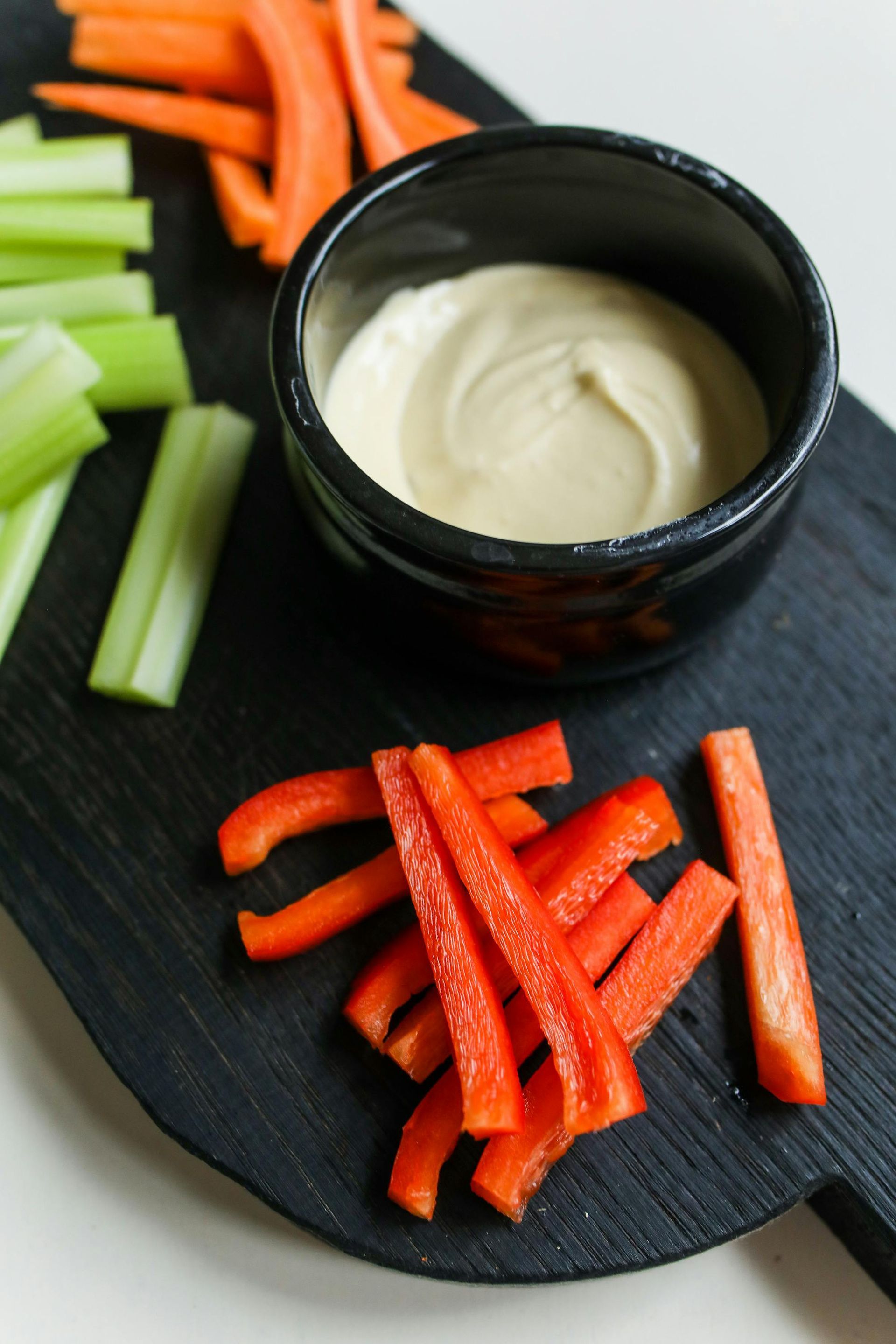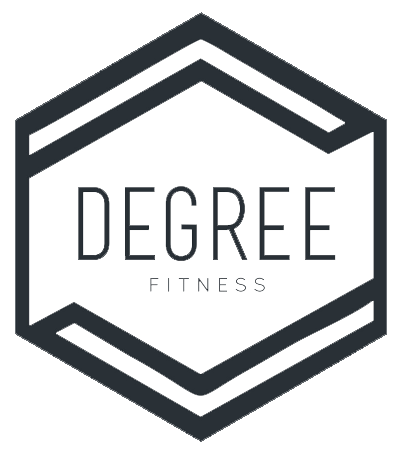What's your best weight?
July 11, 2021
Written By: Registered Dietitian Mairead As a dietitian, this is a very common question I get: how much should I weigh?
While this seems like a straight-forward question, it's often more complicated than we'd think.
You could pull out a calculator and figure out how much you should weigh for your height according to the Body Mass Index (BMI). This will give you a theoretical range, but BMI doesn't take variations in how much muscle people have. With our training at Degree, we often see people put on muscle and lose body fat, but their weight stays the same. The BMI equation can't account for this because it's simply just an equation.
BMI also isn't accurate for tall people, short people, and many different cultural groups.
Theoretically, technically, and temporarily, we could diet ourselves down to be almost any weight we want. But long-term weight maintenance is more complicated than that. Temporary weight changes often just take into account calories in and calories out. Long-term changes have to consider the impact on your metabolism, what your lifestyle looks like, how often you can actually exercise, your favourite foods, who cooks at home, your grocery budget, social events... the list goes on!
Your best weight is the one you can maintain without a fight, but where you're still looking after your body.
What exactly that weight is might change through the different seasons of your life, whether that includes an injury, growing your family, or a change in job.
Your best weight includes eating satisfying amounts of foods you love, as well as making eating decisions that support your long-term health. It includes moving your body in ways that feel good, and moving your body often enough to maintain a level of fitness that lets you enjoy your life the way you want.
When we add or take away something from our life in the pursuit of health or a change in weight, there might be a trade off. Getting in extra workouts might mean going to bed earlier and therefore less TV in the evening. Does that fit with how you want to live your life right now? Going on a restrictive diet might mean less eating out with friends, more time in the kitchen, and less of your favourite foods. Are those trade-offs you want to make? There's no right or wrong answer, just deciding what matters to you.
Finally, contrary to what social media would have you believe, there is more to your body size and weight than just how much you exercise and how you eat.
Your body's specific and unique physiology plays a huge role too, and one we usually can't override completely. This includes genetics, your stress levels and the impact that has on your body, and your current metabolism. Other factors could include socioeconomic status and history, dieting history, and any underlying medical conditions.
Keeping all of this in mind, here's my answer to what your healthiest weight is:
Your healthiest weight at this time is the one where you are eating and moving in ways that feel good and are promoting overall health without taking away from other important parts of your life or sacrificing your mental health.
If you're looking to learn more about how we can work some nutrition changes into your life to help you be your happiest and healthiest self at your best weight, let's chat more.
Nutrition Consultations and On-Going Nutrition Coaching are not available at this time, but you can join the waitlist to be first in line when spots open up. To join the waitlist or to learn more, email mairead@degreefitnessseaforth.com!

Written By: Mairead, Registered Dietitian Nutrition labels can be confusing! But they're on packaging to help you know more about your food so you can make choices that align with your health and fitness goals. Grab your nearest food label. On the black and white Nutrition Facts table, you'll see a list of nutrients with values beside them. For most of them, there will be an amount in grams or milligrams listed on the left and a percentage over on the right hand side. That percentage can help give us context! As you'll see listed in teeny writing at the bottom of the table, 5% is a little, 15% is a lot. This means that if there's a nutrient we want more of, like fibre, we want that percentage to be higher, ideally towards 15% or more. If there's a nutrient we want less of, we want it to be closer to 5%. For most normal healthy people, we want to have less sodium (salt), sugar, and saturated fat, while including more fibre. There may also be times when you want to focus on a specific vitamin or mineral, like iron or calcium. These are also listed with a percentage and can be used the same way. A key part of label reading is knowing what is most important for you. For many food categories, you can't prioritize everything. There may not be one product that is the lowest in saturated fat AND the lowest in sodium AND the highest in fibre AND has the most protein AND has the most iron ... the list could go on. But if you can narrow it down to a couple things that matter most for your health and fitness goals, you can start making choices based on food labels, without all the overwhelm. Check out your food labels, use the percentages, and make choices that fit with your goals! Looking for more personalized nutrition advice? Let's chat! Email mairead@degreefitnessseaforth.com for more information about our Nutrition Programs, or click HERE to book your FREE Bite-Sized Nutrition Chat!

Written By: Mairead, Registered Dietitian Snacking causes a lot of worry for many people! Is snacking bad? When should we be snacking? What's the best snack? Snacking itself isn't a bad habit, unless it's not aligned with your health and fitness goals. Snacks can actually do a lot of good to keep our energy levels up throughout the day and help meet our nutrition needs. Let's check out four ways you can improve your snacking habits! 1. Think about why! If you're concerned about whether your snacks are a problem, it's worth thinking about why you're snacking. Are you hungry between meals? Do you need some fuel before or after a workout? Are you bored at work in the afternoon or need a pick-me-up? Do you need something to do with your hands while watching tv? Are you starving at the end of the day when you get home before you have a chance to make dinner? Snacks serve lots of purposes, from keeping our energy stable during the day, to meeting emotional needs. If you don't feel good about why you're snacking, it might be time to find some other way to meet that need. 2. Plan for your snacks! Often, we may know we need a snack, but not be able to make a healthy choice about it because we're too busy or just too hungry. A little planning goes a long way! Planning ahead for these times can help us make choices that align with our goals, and have something at the ready before we're too hungry to make that healthy choice. Pack a snack or have one at the ready during the times of day or situations when you know you'll need it. 3. Make them satisfying! If a snack isn't satisfying, we'll be reaching for something else soon. For longer lasting energy, choose snacks that have a combination of protein and carbs. This might include yogurt with berries, a higher protein granola bar, crackers and veggies with hummus, or even a couple handfuls of trail mix. If you find yourself finishing your snack without even noticing what you've eaten, try taking a minute to eat more mindfully and focus on your food. This will help you feel more satisfied with it! 4. Fill your nutrition gaps! Snacks are another opportunity to add nutrition to your day. Are there specific foods you're trying to add more of to your diet? Are there nutrients you feel you may be lacking? Use snacks as a way to add these in. If you're concerned about protein, try adding canned tuna, hardboiled eggs, or Greek yogurt to your snacks. If you feel you're lacking vegetables or fruit, include at least one in your snack. If you're trying to include more plant-based proteins, lean on bean-based dips or try roasted chickpeas. The options are endless! Remember, snacking isn't good or bad, and can serve a lot of different purposes. Try using these tips to help your snacking align better with your health and fitness goals! Looking for more personalized nutrition advice? Let's chat! Email mairead@degreefitnessseaforth.com for more information about our Nutrition Programs, or click HERE to book your FREE Bite-Sized Nutrition Chat!

Written By: Mairead, Registered Dietitian As a Dietitian, I work with a lot of different people. One common thread is that we talk about excuses. So many people come in to a nutrition consultation and tell me about their challenges with nutrition and fitness, and then follow it up by saying something along the lines of "I know these are just excuses, I can do better". The things we often consider excuses can include having a busy job and a busy family life. Working weird hours. Struggling with the cost of groceries. Caring for loved ones. Managing health concerns, chronic diseases, or injuries. The list goes on. For my nutrition clients, I rarely consider any of these things to be excuses. It's not an excuse that you can't eat well because you work long hours and then take your kids to their sports practices - these are very real reasons why you're struggling to make healthy choices. It's not an excuse if you work nights and need to get some sleep so you didn't make it to the gym - it's as aspect of your life that makes getting enough exercise challenging. Think about the things you might consider to be your excuses for not "doing better" with your health and fitness. Are they really just parts of your life or the season you're currently in? None of these things should be making you feel bad or like you're making excuses. But on the flip side, these reasons also don't mean we need to throw in the towel on our goals entirely. They mean we might need to get a bit creative, decide what's really important to us right now, and ask for help when we need it! Instead of feeling bad about your "excuses" that aren't really excuses, it might be time to find some new ideas. Working with a Dietitian can be a great way to figure out what's actually important in your health and fitness goals, and come up with some new ideas to get you there. There are always steps we can take in the right direction to move past those "excuses" and work together for a happier and healthier you! Looking for more personalized nutrition advice? Let's chat! Email mairead@degreefitnessseaforth.com for more information about our Nutrition Programs, or click HERE to book your FREE Bite-Sized Nutrition Chat!
